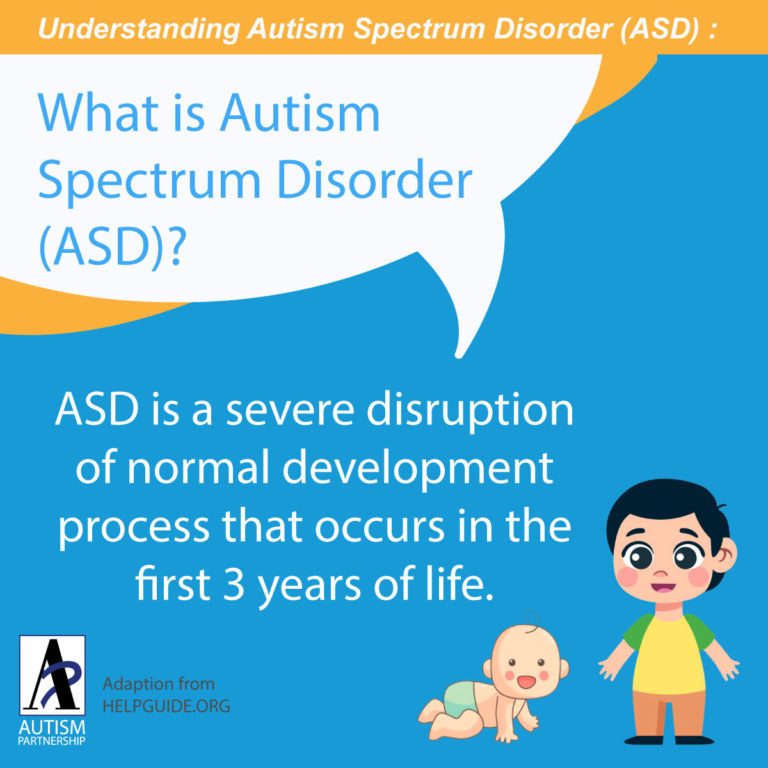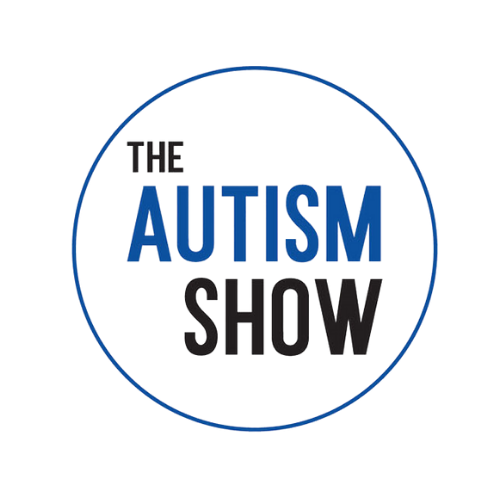- What is Autism Spectrum Disorder (ASD)?
- What are some common myths and misconception on ASD?
- What are the causes and risk factors of ASD?

Autism Spectrum Disorder (ASD) is a developmental disability that can cause significant social, communication and behavioral challenges. There is often nothing about how people with ASD look that sets them apart from other people, but people with ASD may communicate, interact, behave, and learn in ways that are different from most other people. The learning, thinking, and problem-solving abilities of people with ASD can range from gifted to severely challenged. Some people with ASD need a lot of help in their daily lives; others need less.
- ASD Signs and Symptoms
- Early Signs of ASD: Identifying ASD Signs in Toddlers
- Developmental Milestones by Age
Autism Spectrum Disorder (ASD) typically appears during the early years of life. Early assessment and intervention are crucial to a child’s long-term success.
Some early ASD signs include:
– No social smiling by 6 months to no two-word phrases by 24 months
– Poor eye contact
– Not showing items or sharing interests
– Unusual attachment to one particular toy or object
– Not responding to sounds, voices, or name
- Diagnosing ASD
- Developmental Monitoring & Screening
- FAQ on ASD Assessment
There are several ASD screening tools that can be used, including the Autism Diagnostic Observation Schedule (ADOS) performed by a child psychologist, and parent interview scales such as the Child Autism Rating Scale (CARS), Autism Diagnostic Interview-Revised (ADI-R), and Developmental, Dimensional and Diagnostic Interview (3DI). Measures of child’s speech and language skills and intellectual ability also help professionals plan intervention.
Monitoring, screening, evaluating, and diagnosing children with ASD as early as possible is important to make sure children receive the services and support they need to reach their full potential. There are several steps in this process.
- Critical Factors That Affects ASD Treatment
- Autism Recovery and Prognosis
- What is Early Intervention?
- Effective Autism Therapy
Early interventions occur at or before preschool age, as early as 2 or 3 years of age. In this period, a young child’s brain is still forming, meaning it is more “plastic” or changeable than at older ages. Because of this plasticity, treatments have a better chance of being effective in the longer term. Early interventions not only give children the best start possible, but also the best chance of developing to their full potential. The sooner a child gets help, the greater the chance for learning and progress. In fact, recent guidelines suggest starting an integrated developmental and behavioral intervention as soon as ASD is diagnosed or seriously suspected.
- ASD Resources for Parents in Singapore
- Get ASD Diagnosis Singapore: List of Developmental Paediatrician
- ASD Insurance in Singapore
- Effective ASD Treatment in Singapore (MOH Clinical Recommendation)
Following Singapore’s AMS-MOH Clinical Practice Guideline 1/2010, one of the most scientifically proven treatment methods for autism is Applied Behavior Analysis (ABA). Awarded Grade A in terms of Level of Recommendation and Level 1++ in terms of Level of Evidence. ABA is the highest-rated treatment method by the Singapore Ministry of Health (MOH).
Developmental and Behavioral Paediatrician assess and manage children from birth to 7 years old with a range of learning, behavioural and developmental needs. These include: Autism Spectrum Disorder (ASD), Attention Deficit Hyperactivity Disorder – ADHD (Children), Speech and Language Disorders, children with Hearing Impairments, Developmental Delays, Specific Learning Disabilities (i.e. Dyslexia, Developmental Coordination Disorder, Specific Language Impairment), behavioural difficulties, and children with chronic illnesses at risk of developmental delays. For ASD diagnosis, refer to List of Developmental and Behavioral Paediatrician in Singapore here.
- EP1: The Invisible Disability and Determined Persistence
- EP2: A Better Tomorrow
- EP03: Doctor on The Street – What is Autism Spectrum Disorder (ASD)?
- EP04: The Causes of Autism
- EP05: Explaining the Increase in the Prevalence of ASD
- EP06 Recognizing Potential Signs of Autism in My Child
- EP07: What are the Early Signs of ASD in Toddlers? An interview with BJ Freeman
- EP08: Street Interview: 4 Autism Myths Busted – ASD Diagnosis and Symptoms
- EP09: Understanding the ASD Assessment Process
- EP10: Challenges in Families with Children with ASD
- EP11: A Mother’s Perspective – Challenges Associated with the Diagnosis of Autism
- EP12: Exploring Treatment Options for Autism
ASD affects people’s relationships with family, friends, and work. How are they doing in those areas? Understand different perspectives from the individuals with Autism Spectrum Disorder (ASD) and the ASD community.









